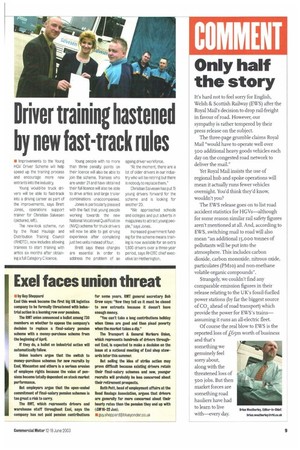Only half the story
Page 9

If you've noticed an error in this article please click here to report it so we can fix it.
It's hard not to feel sorry for English, Welsh 8c Scottish Railway (EWS) after the Royal Mail's decision to drop rail-freight in favour of road. However, our sympathy is rather tempered by their press release on the subject.
The three-page grumble claims Royal Mail "would have to operate well over 500 additional heavy goods vehicles each day on the congested road network to deliver the mail."
Yet Royal Mail insists the use of regional hub and spoke operations will mean it actually runs fewer vehicles overnight. You'd think they'd know, wouldn't you?
The EWS release goes on to list road accident statistics for HG Vs—although for some reason similar rail safety figures aren't mentioned at all. And, according to EWS, switching mail to road will also mean "an additional 15,000 tonnes of pollutants will be put into the atmosphere. This includes carbon dioxide, carbon monoxide, nitrous oxide, particulates (PMic)) and non-methane volatile organic compounds".
Strangely, we couldn't find any comparable emission figures in their release relating to the UK's fossil-fuelled power stations (by far the biggest source of CO2 ahead of road transport) which provide the power for EWS's trains— assuming it runs an all-electric fleet.
along with the threatened loss of 500 jobs. But then market forces are something road hauliers have had to learn to live with—every day.












































































































































































